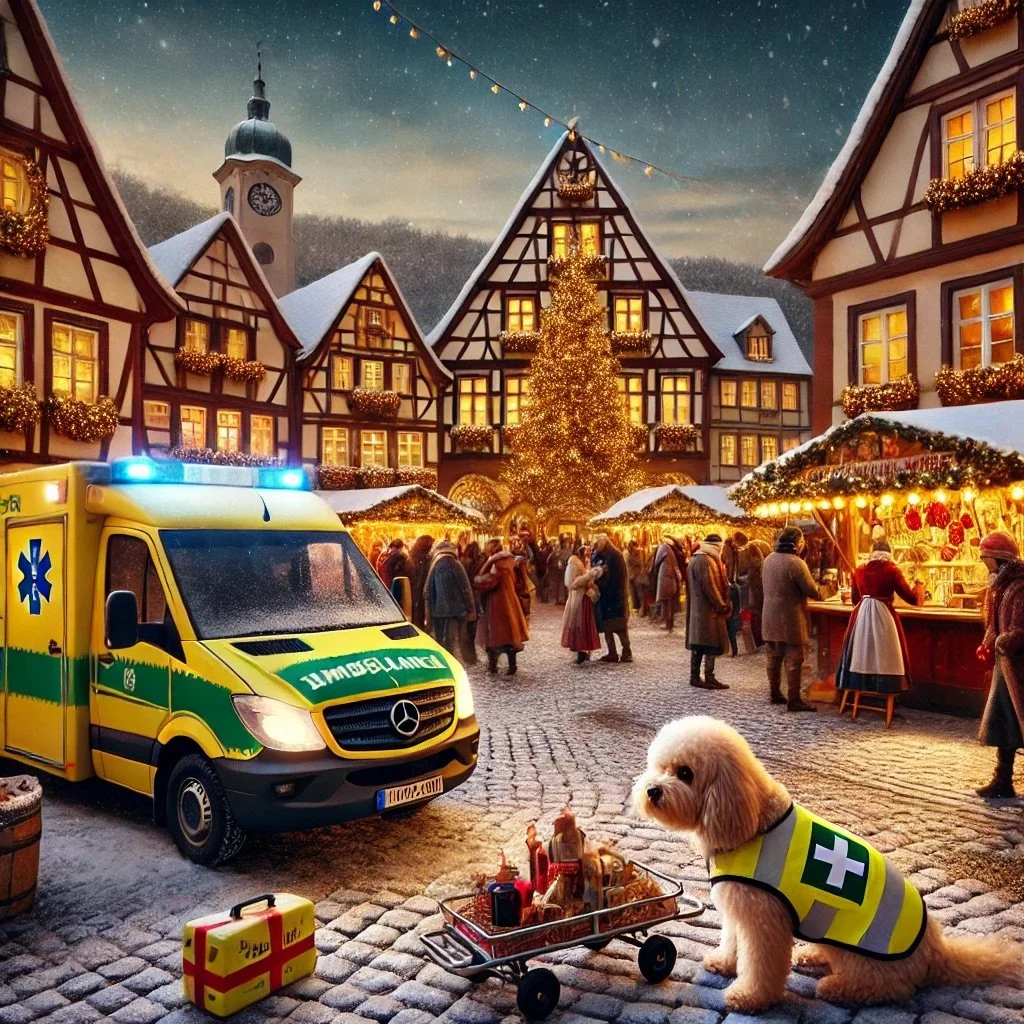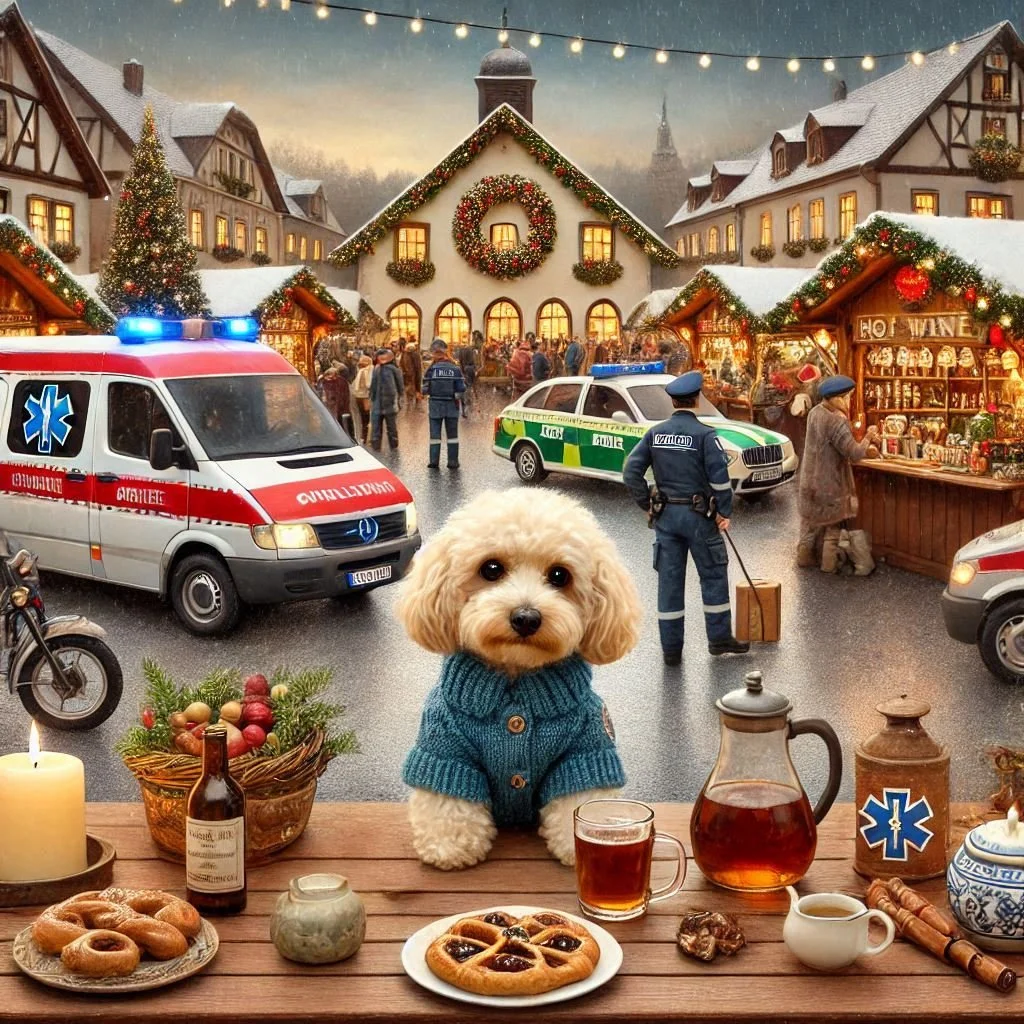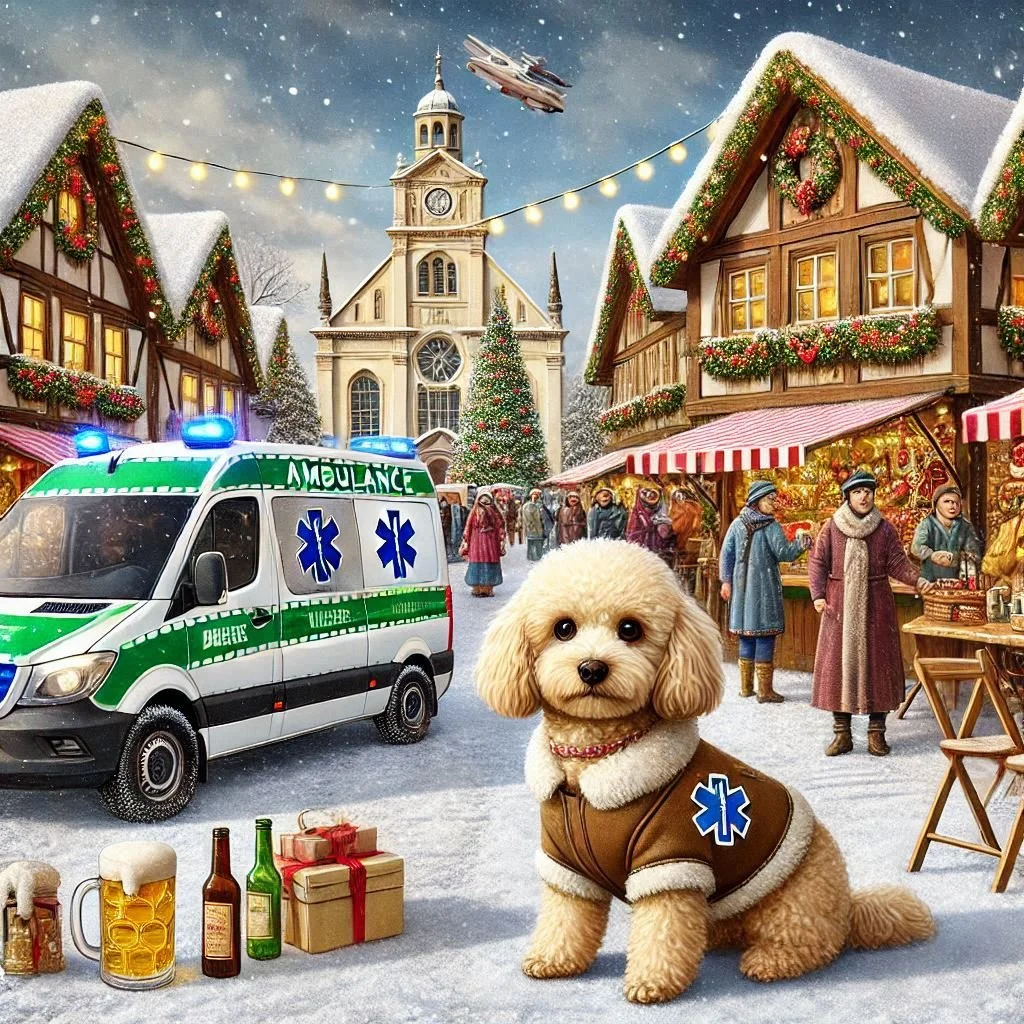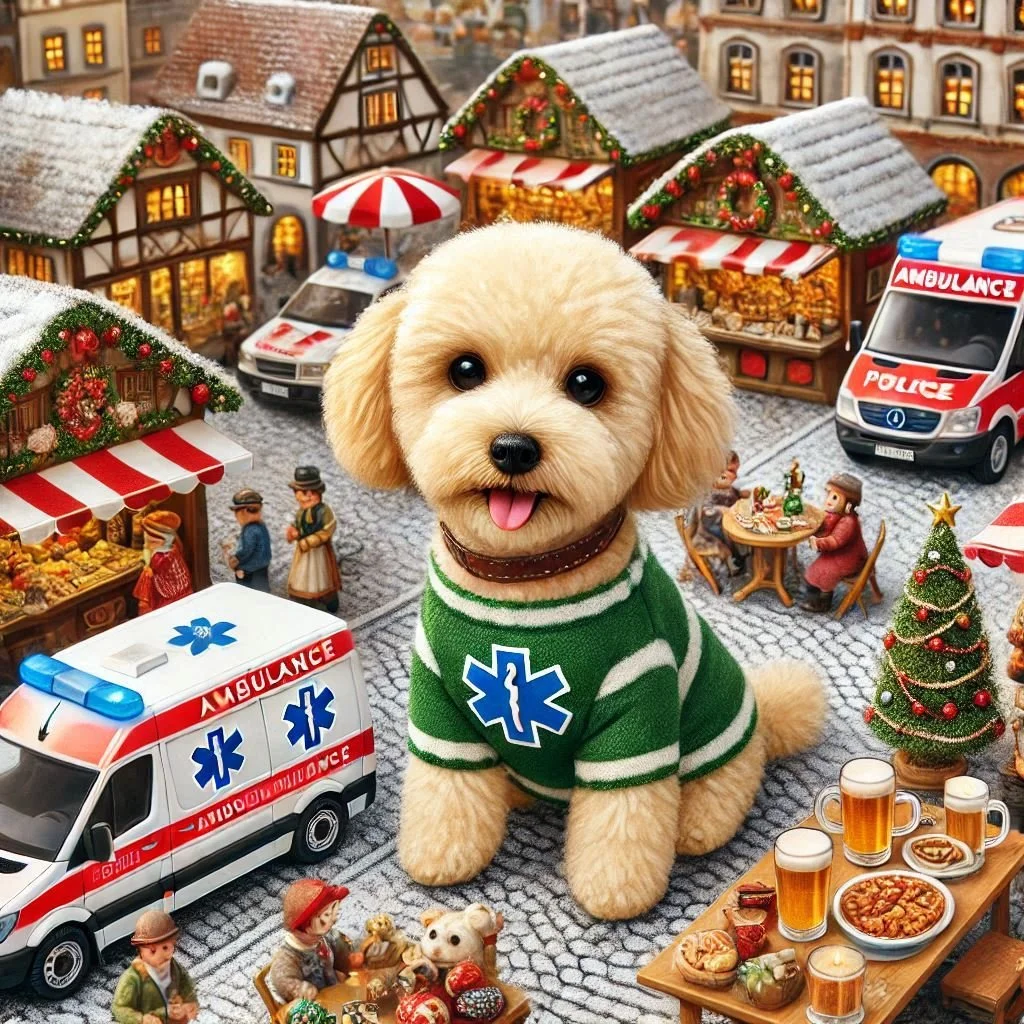FLOSSI AND WEIHNACHSMÄRKTE
The history of Christmas markets in Germany dates back several centuries, deeply rooted in the country’s medieval traditions. These markets, known as Weihnachtsmärkte, are now an iconic symbol of German culture and the holiday season. Here’s an overview of their history:
Origins of Christmas Markets
Medieval Roots:
Christmas markets originated in the Late Middle Ages as winter markets where local artisans, farmers, and craftsmen could sell goods and provisions to help people prepare for the cold months.
Over time, these markets became tied to Christmas, focusing on festive items, gifts, and seasonal food.
Early Documented Markets:
Vienna, Austria (1296): One of the earliest known winter markets, although not explicitly a "Christmas" market.
Dresden, Germany (1434): The Striezelmarkt in Dresden is widely regarded as the first true Christmas market. It was named after "Striezel," a local cake that later evolved into the famous Stollen.
The Protestant Reformation led by Martin Luther in the early 1500s popularized the idea of giving gifts to children during Christmas, tying it to the figure of Christkind (Christ Child). This tradition reinforced the importance of the markets during the holiday season.
Markets expanded to include toys, sweets, and handcrafted gifts for children.
Early markets sold items such as:
Woven goods and wood carvings
Candles and Christmas decorations
Festive foods like roasted nuts, gingerbread (Lebkuchen), and mulled wine (Glühwein).
Regional Specialties:
Each region of Germany developed unique contributions to Christmas markets:
Nuremberg: Famous for its Nuremberg gingerbread and Prune Men (figures made from dried fruits).
Erfurt: Known for its beautiful nativity scenes and hand-blown glass ornaments.
Dresden: Celebrated for its Stollen Festival, showcasing the famous Christmas bread.
Notable Markets:
Nuremberg Christkindlesmarkt: Among the most famous, it features the ceremonial opening by the "Christkind" figure.
Cologne Christmas Market: Located near the iconic Cologne Cathedral, it is one of the largest in Germany.
Berlin: Hosts several markets, each with its unique charm, including the historic Gendarmenmarkt Christmas Market.
Dresden Striezelmarkt: The oldest documented Christmas market in Germany.
Warm drinks include Glühwein (mulled wine) and Feuerzangenbowle (a flaming spiced punch).






